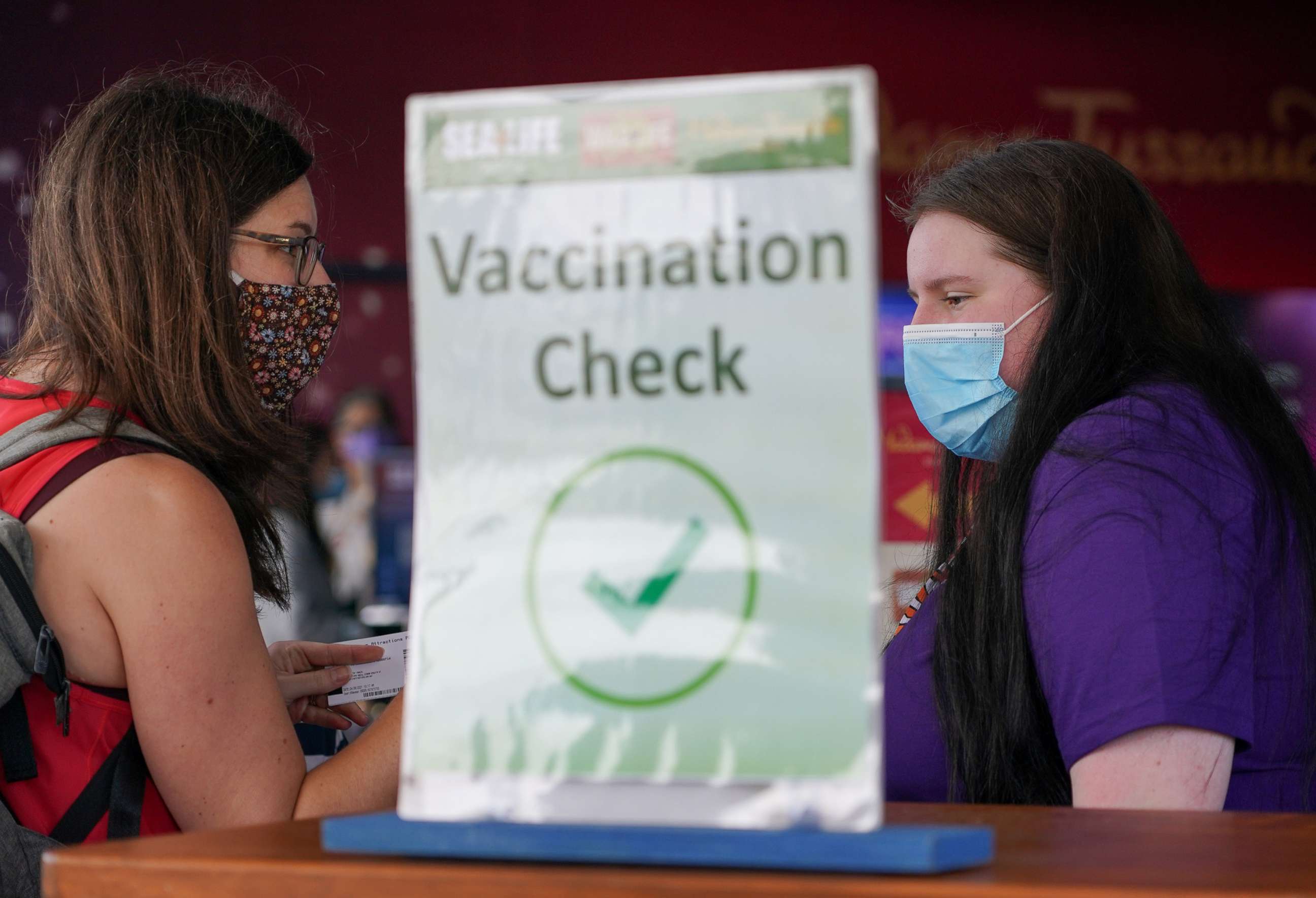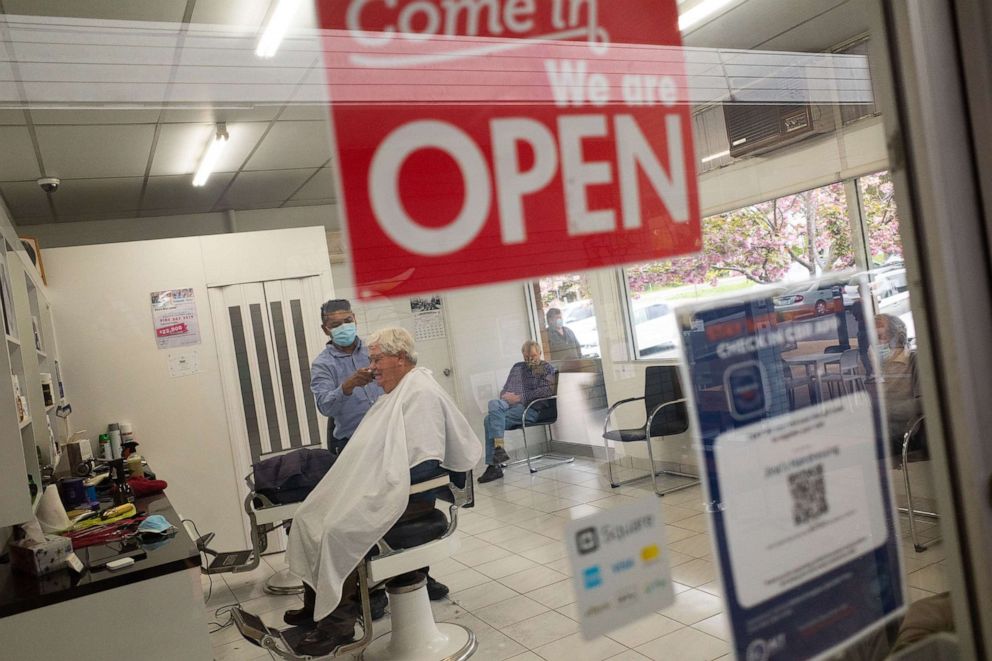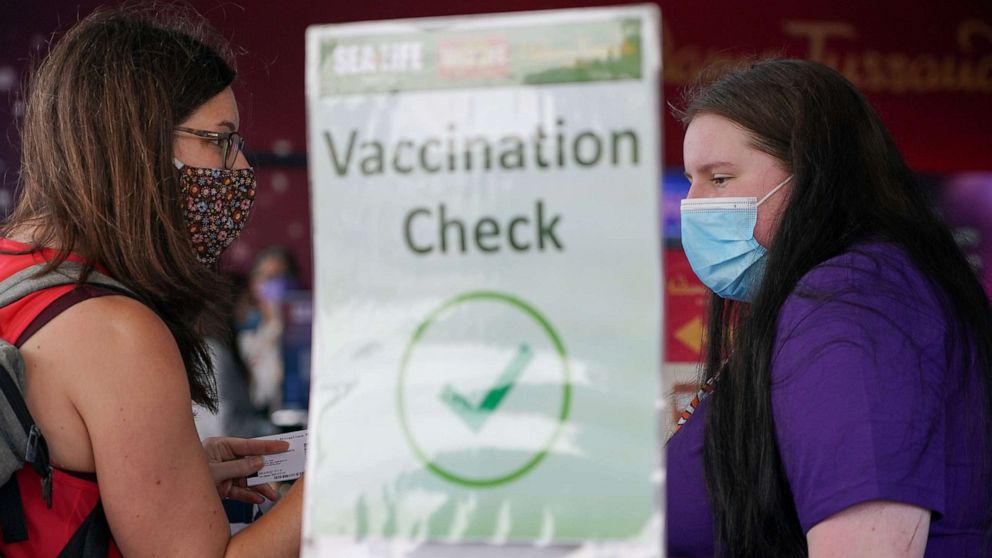Returning to 'Fortress Australia': Reporter's Notebook
Like the hundreds of thousands of Australians living abroad, I've felt the gaping distance between myself and my family because of my home country's ironclad borders. As I've spoken with more and more Aussies in the same castaway boat, I realized how many of us shared the same sense of loss and longing, and how with it comes a deep frustration that we've been excluded from "Fortress Australia" for far too long.
Two years on, I've missed funerals, weddings, births, precious moments with my elderly grandparents. Australia's strict border policies, however, helped keep residents safe -- and saved so many lives. While other countries faced overwhelmed hospital systems and devastating death tolls, my family in South Australia and Tasmania have hardly experienced what pandemic daily life is all about for so many others.
Having to abide by tight caps on the number of arrivals -- about 3,000 passengers are permitted each week -- many commercial airlines have been hiking up ticket prices and consistently canceling flights. The handful of monthly government-operated Qantas flights often sell out within 20 minutes -- and just seven minutes for one of the most recent flight out of London.
After anxiously waiting by my laptop every morning for several weeks for the lottery-style government flight offer to pop up in my inbox, I was lucky enough to secure one of these "golden tickets" home.
At. Last.
A mountain of admin came next. Pre-departure quarantine, a PCR test, a bunch of online forms for health screening and entry into Australia. We were told to arrive at the airport more than three hours early and to buy snacks and bottled water before boarding, in preparation for the stripped-back service on the 17-hour journey. We were to put our rubbish into bright yellow biohazard bags.

Touching down in Darwin, in the Northern Territory, the emotion from my fellow Aussies-in-exile was palpable: welled-up eyes, sighs of relief, releases of laughter.
Rory, who sat in front of me, had only seen his partner for three months in two years, saying: "I'm lost for words, I'm exhausted. It's been a long wait. It doesn't seem real yet. Once I actually sit down in the quarantine, call her and say, 'I'm home,' that's when it's really going to kick in."
From the airport, it's a 25-minute drive to the Howard Springs quarantine facility, our home for the following two weeks. Known as the Center for National Resilience, this massive, fenced camp can host 3,500 people. In pre-COVID times it housed construction and mining workers.
The cost of a two-week quarantine for one adult is around $1,800. There's strictly no alcohol allowed. No care packages. And don't even think about sneaking in contraband, they warn, because bags can be searched.
Each room -- called a "donga" -- contains a pretty standard setup, but there's a huge porch to hang out on whenever you want. Having experienced the kind of hotel quarantine where you're unable to open a window, the freedom to take in all the eucalyptus-infused fresh air you desire is a big plus. The fluorescent pink Northern Territory sunsets are phenomenal.

When the food is good, it's really good. Highlights include the lamb korma and locally caught Barramundi.
Every morning around 8:30 a small team arrives at my door in hazmat suits to check my temperature and gauge how I'm coping with the searing tropical heat -- and the isolation. We take three PCR tests during our stay.
Then there are allocated laundry days. On my latest sojourn to the laundromat, I walked past several families with young kids, who were dancing around to the Spice Girls from their respective porches. I shouted out to one of the mothers from behind my mask, "You are having way too much fun for quarantine," and she replied, "Shh, don't tell anyone."
Resilience, indeed, I thought. Many of these people have gone through an immense amount of distress and tried for so long just to get home.
In September, Prime Minister Scott Morrison finally acknowledged the frustration Aussie expatriates were going through and opened up the prospect of families being able to reunite at home for Christmas: "You have saved lives by enduring and going through those difficulties, so thank you -- I do appreciate it, and your fellow Australians do also."
Authorities are finally delivering on the promise of allowing them home. An announcement was made on Friday that the state of New South Wales will welcome back all vaccinated Australians and their families without the need to quarantine from Nov. 1.
The news has ushered in a bold new era of hope for the tens of thousands of Aussies still in exile.




